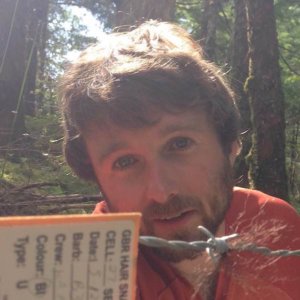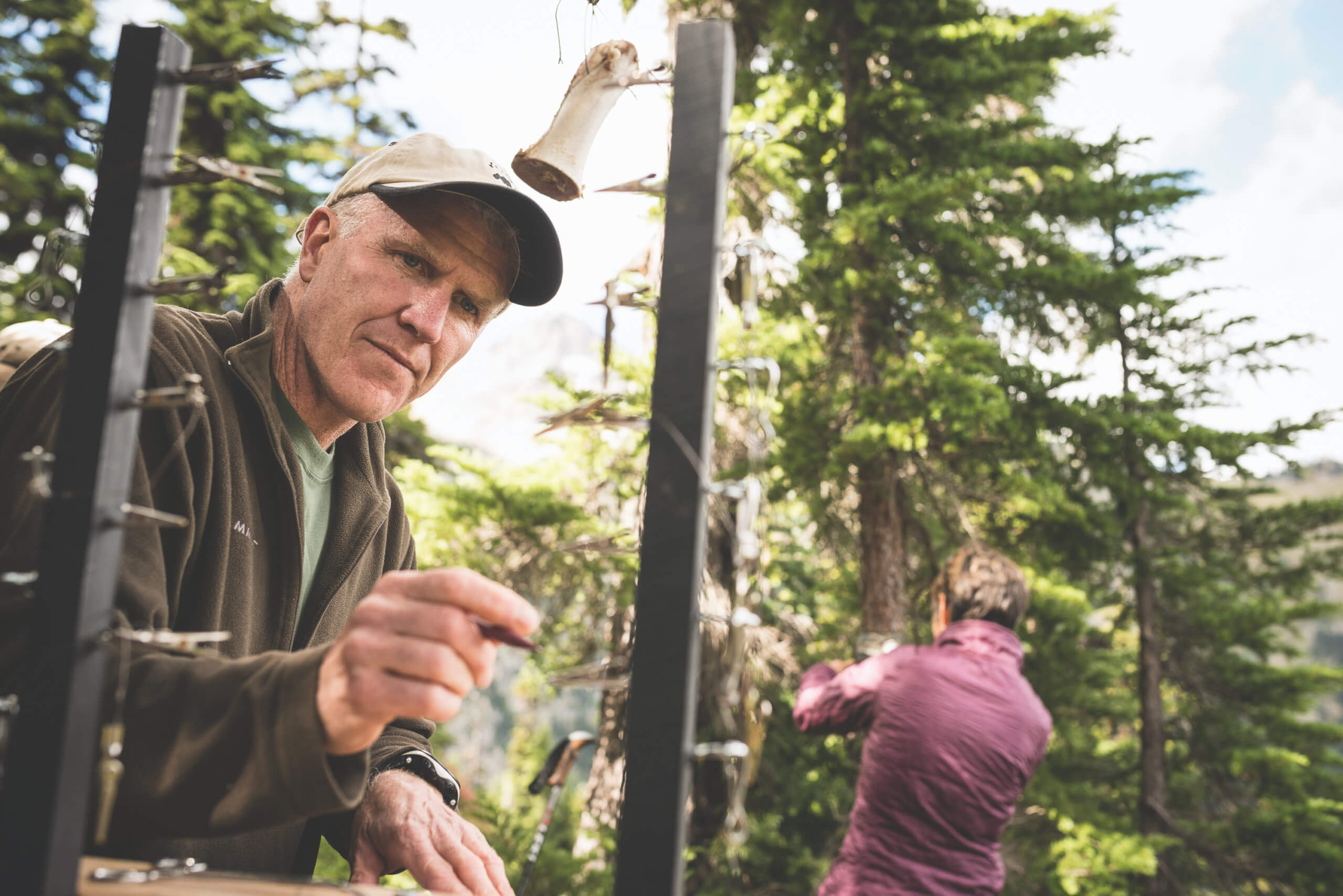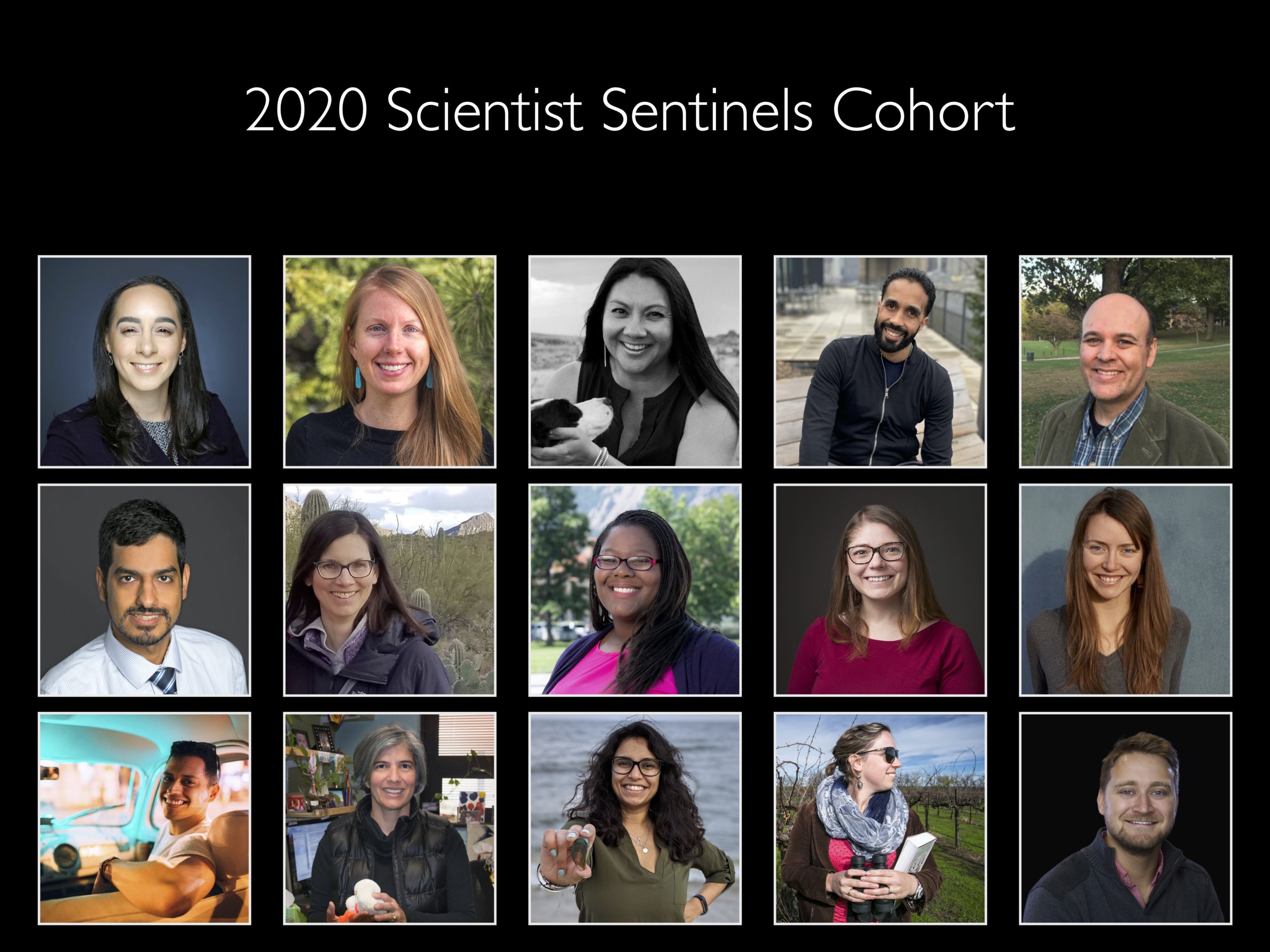Kyle Artelle studies the ecology and conservation of wildlife, with a focus on black and grizzly bear population dynamics in the Great Bear Rainforest of British Columbia, bear-human conflict throughout the province, and wildlife management in general. He works to democratize ecological decision-making by sharing the best available knowledge and science with managers and the broader public.
I caught up with Kyle to hear his Wilburforce Fellowship stories, shared below.

Kyle Artelle.
Why did you want to be a Wilburforce Fellow?
In school, I didn’t learn much about how to share science with people beyond academia. This fellowship seemed like a great way to get the training to learn about that, to learn to bring information to a specific audience, and to work, think, and communicate more clearly.
Prior to the fellowship we had a paper come out on the grizzly bear trophy hunt in British Columbia, a hunt that is very controversial—the province has maintained that it’s a science-based hunt, but our research found that there’s considerable risk in the current approach to management. We were sharing that research across different media, and although it was fairly successful in its reach, I felt that there were certain cases where I wasn’t fully prepared, something I felt more training could have helped with. There was one live TV-show where I was being interviewed alongside a hunting proponent. He gave a five-minute answer to a question from the interviewer, and in his answer he misrepresented our research and also our organization, but by the time the interviewer came back to me we were on a different subject. I didn’t know how to circle back to the earlier comments and address those factual errors, so the misinformation he presented went on the record without correction. The training has made me much more comfortable. An almost identical situation happened again recently, but this time I was donning my metaphorical Wilburfellows cape, and said ‘I just need to clarify a couple of points before answering your question,’ which allowed me to drop a couple of clarifying truthbombs, clearing the air of misinformation before moving on to what had just been asked.
What new or different things do you do to communicate your research as a result of the fellowship?
It’s hard for me to pinpoint this, as what we learned through the fellowship has really permeated so much of my work. But one example comes to mind – when I was driving back to Canada after the fellowship I was carpooling with Jon Moore. He told me about an upcoming paper that he wrote from the ground up with the Message Box, and said doing so helped immensely. This kinda blew my mind. My go-to-approach to writing papers to this point was to dump an amorphous blob of words into a document and then hack these down for months until a coherent story emerged – the possibility of having a clear story from the beginning was revolutionary.
So I tried this for the next paper I was working on – we had our data and knew what the results were, but hadn’t yet conceptualized how we were going to tell their story. We used the Message Box to focus our thinking, and ended up with a much less painful writing process as a result, and probably a much clearer paper. As a bonus, when the paper was published it was already so much clearer and easier to talk about — it took far less prep before interviews because we’d done half the work already. It was illuminating – sometimes all the work you put into science communication feels like a big time cost—but by doing this work up front, it not only resulted in a clearer paper but I think ended up saving us time in the long run.
Another example that I’ve been quite excited about is more about seeing how my research might integrate with on-the-ground work—when we were doing the training, I was talking about research we’re doing about the incorporation of science in wildlife management across North America. The trainers and fellows kept asking ‘how are you reaching managers, what course will you take to get this research out to them?’ We were planning to publish our results in a journal, and hoping people would access it that way. Despite realizing that wasn’t enough, I was having a hard time figuring out how to reach managers.
But then shortly after the training, an opportunity came up within the Heiltsuk First Nation, where I live (as a guest) on the central coast of Canada, for me to have an advisory role in an evolving wildlife management planning process. Although this opportunity didn’t arise because of the fellowship, the training helped me to realize the link between the academic research I was doing and this on-the-ground work. Maybe even more exciting – in our training we were taught to look for ‘bright spots’ – best-case examples of conservation successes, to help inform conservation elsewhere. I was having a hard time finding this brightness in my dark dataset, but the management happening in the Nation here really is exemplary – it turns out the bright spot I was looking for was right at home! I guess the training helped me to look beyond my laptop for this management work, and I’ve been learning a lot from this ‘extra-laptopial environment.’
What advice would you give to future #WFellows? What should an incoming Fellow expect?
If you’re at all considering the fellowship, stop deliberating, apply! Some people might be hesitant because of the time commitment—another week or two out of your schedule might seem daunting, but it absolutely is worth it. I’ve found it pays for itself in spades in terms of the support network and training and how it expands your thinking. It’s already been super valuable in my own work and thinking moving forward. And an added bonus – we ended up with a real family of fellows. A lot of fellows were at the North American Congress for Conservation Biology this year, and it was just like a family reunion (but without the drama). I look forward to a lifetime of learning lots from this supportive community, and continuing to be inspired by the amazing work they all do!



